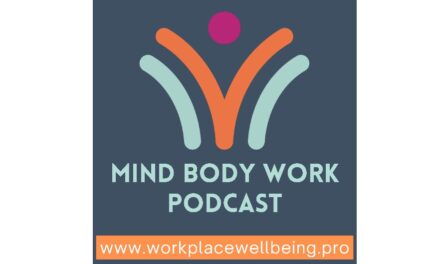A survey commissioned by the Mental Health Foundation found 74 percent of adults felt stressed ‘to the point they felt overwhelmed or unable to cope’. However,Lisa Gunn, Mental Health Prevention Lead at Nuffield Health, explains that there is a way in which we can harness positive stress known as ‘eustress’ to create a happier and more productive way of working whilst also avoiding the damaging effects of burnout.
Defining eustress
According to medical research, there is a type of positive stress known as ‘eustress’. The Oxford Dictionary defines it as, “moderate or normal psychological stress, interpreted as being beneficial”.
Some of the typical characteristics of eustress is a short-term burst of energy that motivates you to act. This can cause us to perform better whilst feeling energetic, alert, and motivated.
This is a different response to chronic stress where we often feel overwhelmed and unmotivated yet continue to push ourselves to work in this state which can cause our physical and mental health to suffer.
How to harness eustress in the workplace
Eustress can be beneficial to help us succeed at work. Although the response is usually temporary, it can help when we need to complete a specific task. This can prevent us engaging in behaviours such as procrastination. This is where we delay a task perhaps due to the energy it may take to complete or to prevent experiencing any negative emotion the task may produce.
However, a way in which we can harness this positive stress response is by working for short periods of time. Our brains often respond better to tasks when we know a break is coming. For example, we may take a task on our to-do list and set a timer for 25 minutes and start the task.
When the 25 minutes is up, take a short break, move your body to change your physiological state then either continue for another 25 minutes or start a new task. This can also prevent us from feeling overwhelmed and prevents a build-up of stress by allowing our bodies to rest.
Recognising chronic stress
When we are stressed, our body is elevating towards our fight or flight response which means it is producing adrenaline and cortisol. When we are exposed to constant cortisol levels this will start to negatively impact our health.
Some of the common symptoms of continuous, elevated stress include irritability, concentration difficulties and procrastination. Potential physical and mental health problems caused are anxiety, obesity, insomnia, high blood pressure and depression.
It is important managers know how to confidently have sensitive conversations with individuals to help support them via any workplace adjustments or by seeking professional support if required.
If someone has high stress levels it is likely that their ability to function will reduce as they seek to manage symptoms whilst remaining under stress. We may notice more errors in work, reduced concentration, irritability or perhaps our colleagues will become more withdrawn.
Employees need to be aware and frequently reminded of what support is available for them to support their mental health in the workplace.
Where signs of burnout are recognised, employers should signpost employees towards the emotional wellbeing support available to them. This may include Employee Assistance Programmes (EAPs) or cognitive behavioural therapy sessions (CBT), which give individuals direct access to a specialist who can help them explore and understand the factors which are impacting their health and wellbeing.
Joanne is the editor for Workplace Wellbeing Professional and has a keen interest in promoting the safety and wellbeing of the global workforce. After earning a bachelor's degree in English literature and media studies, she taught English in China and Vietnam for two years. Before joining Work Well Pro, Joanne worked as a marketing coordinator for luxury property, where her responsibilities included blog writing, photography, and video creation.











